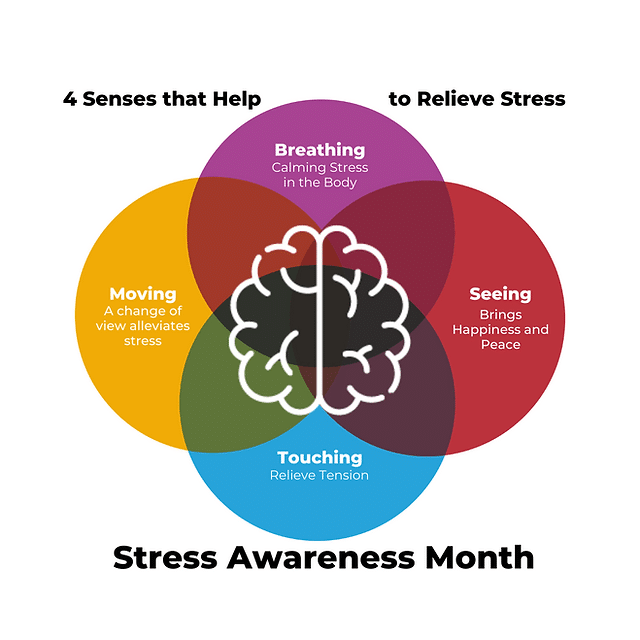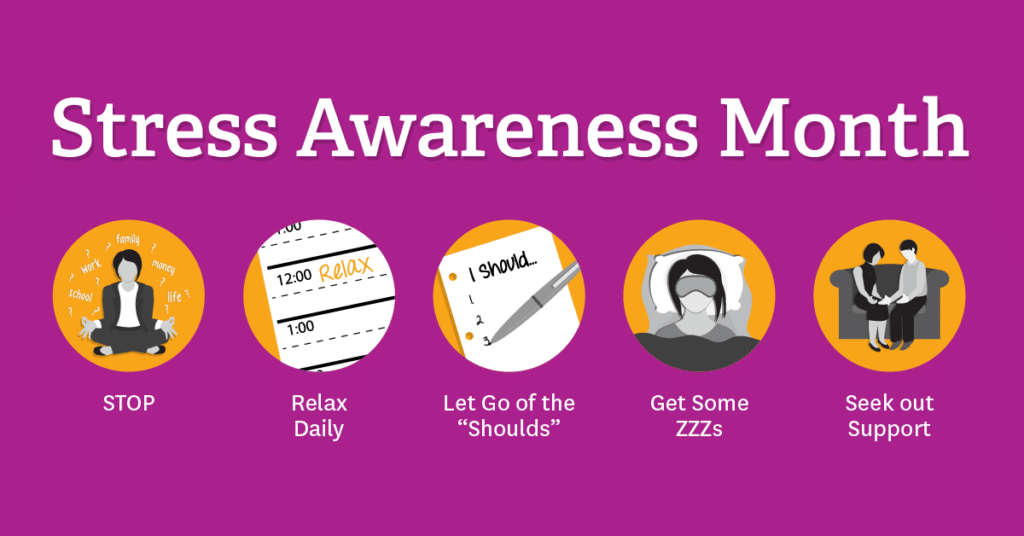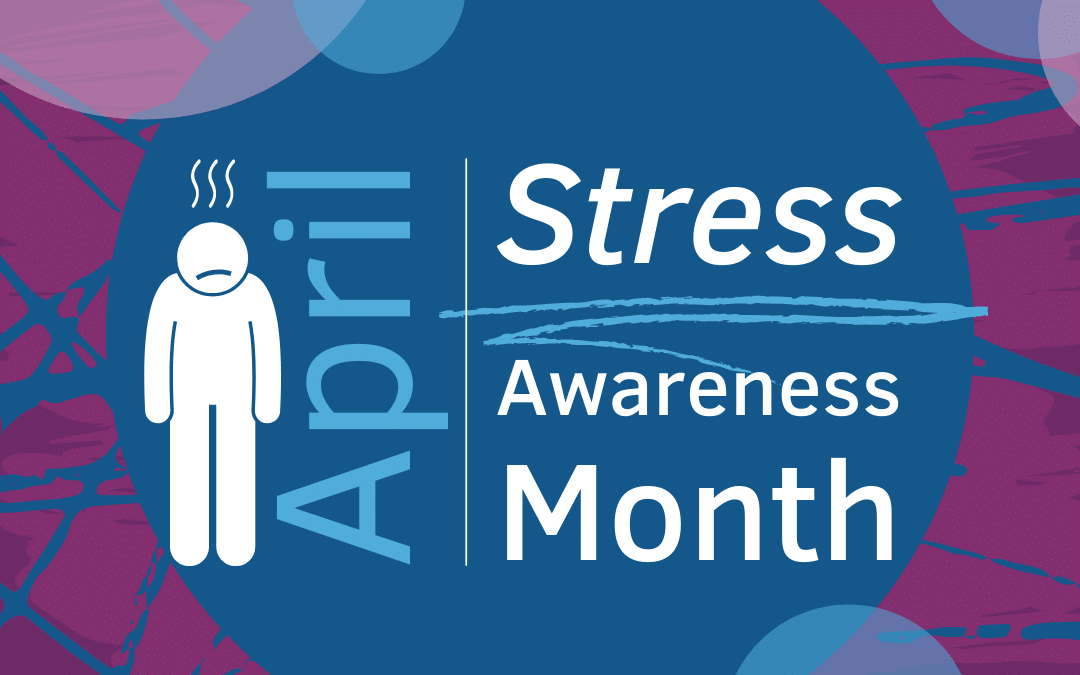Since 1992, Stress Awareness Month is observed with the intention of increasing knowledge about the impact of stress in our lives. During the month of April, Stress Awareness Month is recognized as the time to spread awareness, but also to increase knowledge on how to better manage or prevent it from affecting your physical and mental well-being. In honor of Stress Awareness Month, it is time to discuss some facts about stress, including common causes, recognizing stress in yourself, and what you can do about it. Contact new Roads Behavioral Health for anxiety help in Salt Lake City Utah.
Anxiety can be a debilitating condition that affects many people in Salt Lake City, Utah. Fortunately, there are effective treatments available to help manage and alleviate symptoms of anxiety. Seeking anxiety help in Salt Lake City, Utah can lead individuals to reputable healthcare providers such as New Roads Behavioral Health. The facility offers evidence-based treatment options for anxiety, including cognitive-behavioral therapy, exposure therapy, and medication management. In addition, they provide individualized care tailored to each patient’s unique needs. With compassionate support and comprehensive treatment, individuals with anxiety can find relief and improve their overall quality of life. It is essential to seek professional help when experiencing persistent anxiety symptoms to receive appropriate care and support. If you or someone you know requires anxiety help in Salt Lake City, Utah, do not hesitate to reach out to New Roads Behavioral Health for assistance.
The Truth About Stress
Stress in small doses is to be expected and something we are equipped to handle. The same is not true for stress that is ongoing or left unattended to, it can have serious consequences. The truth about stress is that it affects the entire body and can negatively impact your well-being. Ongoing stress is a risk factor for heart disease, dementia, stroke, accelerated aging, depression, anxiety, insulin resistance, prolonged digestive issues, and disorders, such as irritable bowel syndrome (IBS). Stress can impact your outlook on life, interpersonal relationships, performance in the workplace, school, or other areas of life, and more.
Common Causes Of Stress
Considering that stress can be detrimental, you might wonder what’s most apt to contribute to it. Here are some known common causes of stress in the United States in recent years:
- Cost Of Living and Finances. As of 2023, the increase in prices for everyday items, including things like the price of gas, grocery, and electric or energy bills, is one of the top sources of stress in the United States.
- Workplace. The workplace has been one of the most substantial stressors in the United States for quite some time, and the pandemic has further complicated this concern for many. I noted that low salaries, large or heavy workloads, and unrealistic expectations at work can all heighten workplace stress significantly.
- The Pandemic. According to the American Psychological Association or APA, 67% of people in the United States say they have faced heightened stress throughout the coronavirus pandemic.
- Uncertainty About the Future. In addition to the pandemic, examples of concerns that may cause uncertainty might include planning for an individual’s future, climate change, and other topics.
- Relationships and Family Life. Interpersonal relationships can include romantic relationships, friendships, and more.
- Personal Health and Well-being. Many people experience problems with their health due to chronic illness or an unexpected disease diagnosis. Others may simply want to grow resilience against stress to improve their mental health and well-being.
- Personal Safety. If you have experienced a recent traumatic event or live in a community that is susceptible to crime, you may be feeling additional stress for your personal safety.
Of course, these are only some things that can cause or contribute to higher stress levels. The good news is that strategies can be used to employ stress relief and help you defend your well-being from the potential consequences of stress both in the short and long term.
How To Recognize Signs of Stress
We talked about some of the long-term impacts of stress, but what signs might show up sooner? Understanding the signs of stress can help you recognize them and begin using strategies that help you manage:
- Increased irritability (might include getting agitated or frustrated more easily, snapping at loved ones, or raising one’s voice)
- Feelings or symptoms of depression (might include loss of interest in activities you typically enjoy, feelings of worthlessness or hopelessness, changes in appetite, a low or depressed mood, excessive crying, emotional numbness, and slowed bodily movements)
- Gastrointestinal distress (including nausea, stomach cramps, diarrhea, constipation, and indigestion)
- Feeling lonely because of stressors
- Body aches and muscle tension.
- Mood swings
- Feeling overwhelmed
- Trouble sleeping
- Headaches

Take a moment to check in with yourself and see if you notice the signs of stress. If you are not feeling like yourself, reach out to someone and talk about what is on your mind. Alongside the other consequences of long-term stress, these signs may be ongoing if they are not addressed. Once you acknowledge that what you are experiencing is stress, there are solutions you can employ to address it.
Powerful Solutions for Stress Relief
Thankfully, our research on stress does not focus on the unfavorable impacts alone. A large body of research has also revealed a range of solutions for stress relief. Here are some powerful, research-backed solutions in honor of Stress Awareness Month:
- Spending Time with Others. Positive social connections and support are proven by research to reduce stress and improve health in other areas. Having appropriate social support resources builds resilience to stress and releases stress-relieving hormones that reduces symptoms and increases feeling of well-being.
- Breathing Exercises and Meditation. Both breathing exercises and meditation practices are shown to help individuals relieve stress. In the 1970s, psychologists began to use mindfulness meditation technique as a therapeutic intervention for managing symptoms such as stress, anxiety, depression, or worry. Currently, this practice in therapy is referred to as mindfulness-based interventions and is effective in the alleviation in intense emotional states.
- Progressive Muscle Relaxation. Progressive muscle relaxation, like breathing exercises and meditation, is an example of an accessible, cost-free way to relieve stress. This activity involves tensing and releasing muscles, moving from the top of your body to your toes or vice versa while inhaling and exhaling. You can find free scripts and videos that guide you through this activity online.
- Other Grounding Activities. Grounding activities outside of breathing exercises and meditation may also be beneficial. For example, the 5-4-3-2-1 technique, also known as the five senses technique, where you identify five things that you can see, four things that you can touch, three things that you can hear, two things that you can smell, and finally, one thing that you can taste.
- Physical Activity. Physical activity in many forms, including but not limited to yoga and walking, can relieve stress, and promote physical and mental well-being in other ways. It does not need to be extensive or intense and can be modified to meet your individual needs.
- Addressing the Root Cause. Sometimes, if possible, lifestyle shifts are important for stress management. This can include taking lessons that guide you in your personal life or at work, limiting time spent online if online activity increases your stress, and setting boundaries. However, this can also look like employing radical acceptance and focusing on what you can control instead of what you cannot in cases where you may not be able to change something – or might not be able to change it right away.
- Art and Other Hobbies. Having hobbies is good for your health in more ways than one; various hobbies, including creative hobbies, may promote stress relief. Outside of art, listening to music, spending time with animals, gardening, reading, social activities, and hobbies involving physical activity are possible choices. It is okay to try different activities until you find something you like.
- Time Spent Outdoors. Research indicates that even a small amount of time spent outdoors can relieve stress. Nature is a healing balm for the busyness of life, allowing you to take a moment to absorb the beauty around and take a break.
- Journaling. Journaling can offer clarity on how you feel and aid problem solving, and it is also a way to vent healthily. Various studies on journaling show that it can impact your well-being positively, with benefits like stress relief and more.
- Cognitive Reframing. Cognitive reframing is a tool that may be taught in therapy, but it is possible to work on it outside of therapeutic settings, too. With this reframing method, you shift your perspective by replacing negative or flawed thought patterns with more positive and realistic ones.
- Therapy. Research has proven therapy lowers stress levels and helps with other concerns, such as depression and anxiety, which may share crossover symptoms with stress.

Practicing the activities above and putting in the effort to manage stress in your life is an excellent way to observe Stress Awareness Month or International Stress Awareness Day and support your health all year. Our needs are diverse in lifestyle, rest, and overall stress management. Each person is unique with their own distinct needs for support.
If you find it challenging to manage your current stressors, need help adapting healthy coping skills, or if you and your life are otherwise affected by stress, do not hesitate to reach out to our team who can aid you in finding powerful stress management techniques that work for you.
Contact New Roads Behavioral Health
New Roads Behavioral Health has established itself as a go-to healthcare provider for individuals seeking anxiety help in Salt Lake City, Utah. The facility has successfully treated numerous patients with anxiety and has seen many people return to seek further assistance. The team at New Roads Behavioral Health understands the debilitating effects of anxiety and strives to provide comprehensive care that addresses both the physical and emotional aspects of the condition.
We offer a range of evidence-based treatment options, including therapy and medication management. By providing individualized care tailored to each patient’s unique needs, the facility ensures that patients receive the attention and support they require. Furthermore, the compassionate staff at New Roads Behavioral Health recognizes that anxiety is a complex condition, and recovery is a continuous process. Therefore, they create a safe and supportive space where patients can learn coping skills, manage their symptoms, and work towards long-term recovery. If you or a loved one is struggling with anxiety and requires professional assistance, New Roads Behavioral Health is an excellent resource for anxiety help in Salt Lake City, Utah.

